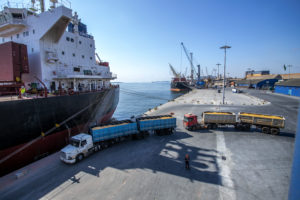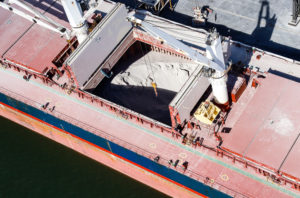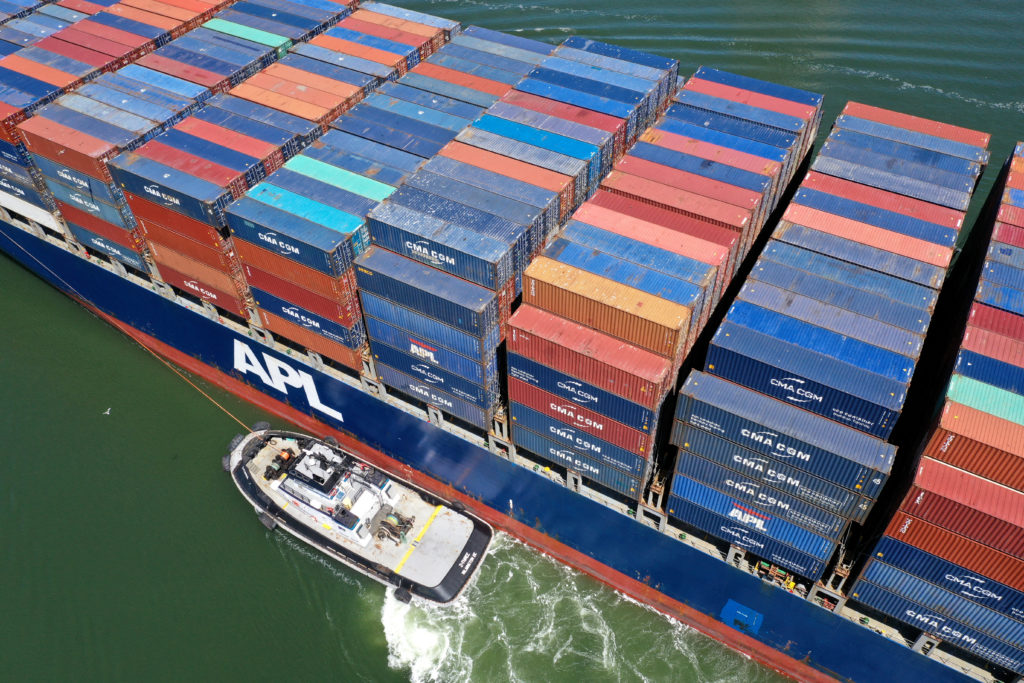São Paulo – Brazil saw a surplus in foreign trade at USD 45.9 billion, with exports at USD 167.5 billion and imports at USD 121.5 billion. But this year’s imports are rising and not just in value – what would be explained by the appreciation of the U.S. dollar or 2020 being an atypical year. In fact, Brazil is importing more than in 2019.

Year to date through July, Brazil imported 99.89 million tonnes, up from 81.7 million tonnes a year ago. From January to July 2019, imports had reached 86.4 million tonnes.
Imports grew from Asia, Europe (except European Union), North America, South America, Mercosur, Association of Southeast Asian Nations, Middle East, Andean Community, Central America and Caribbean, and Oceania. Only Africa and the European Union sold less to Brazil year to date through July than in 2019.
According to Brazilian Foreign Trade Association (AEB) executive president José Augusto de Castro, imports are higher as Brazilian companies are having to rebuild their stocks. “In April 2020, the pandemic led companies to stop buying and turn to their stocks. Now, there’s lack of components, thus we see so much more imports, particularly in intermediate goods for the converting companies,” he says. These goods include equipment and pieces for the automotive, aerospace and oil industries, and many others.

Castro points out another challenge that is putting pressure on companies: The lack of ships and containers, which push up the shipping prices and causes imbalances. The global trade rebound and customs clearances delays across the world have caused a lack of vessels in the Brazilian coast.
“The companies either import or close their factories. So, they choose to import,” he says. He believes this increase in imports could move forward into 2022 but probably won’t affect the trade balance as the commodities that Brazil is a major exporter of are at higher prices.
Professor at the Institute of Economy of the State University of Campinas (Unicamp) and researcher at the Center for Industrial Economics and Technology at Unicamp, Marco Antonio Rocha says that the growth in imports could influence the performance of the trade balance in the mediu term.

However, he points out that Brazil is also buying more natural gas, oil and fertilizers. “We’re undergoing a rise of commodities, which affects imports. What’s more, it’s hard to say how the pandemic may have affected Brazilian imports. After the 2008 crisis, we saw a global [supply] chain reorganization. The crises have strong repercussions in the international trade,” he says.
But he says Brazil’s reliance on foreign goods is impressive. “The Brazilian economy tends to be an importer. With a low economic growth, these problems [of low production capacity] diminish. As the economy rebounds, they bounce back,” he sums up.
Brazil’s trade relation with the Arab countries, though, is not expected to undergo significant changes over the next months, as sales and purchases are focused on commodities, particularly oil and oil products from the Arabs and agricultural goods from Brazil. “A possibility would be increasing imports and exports of higher value-added products. But this should be discussed in the medium and long term,” Castro says.
*Special report from Marcos Carrieri for ANBA
Translated by Guilherme Miranda




